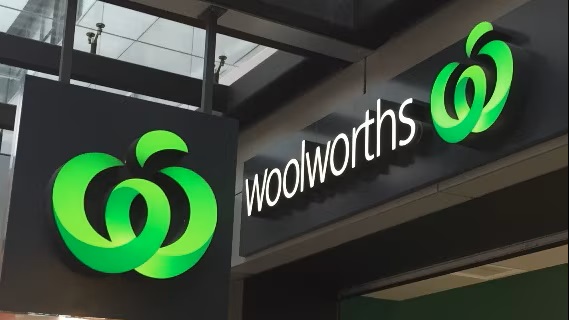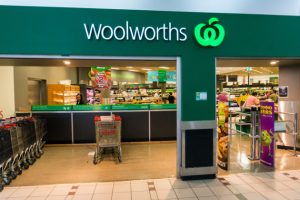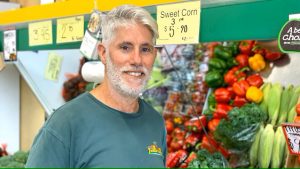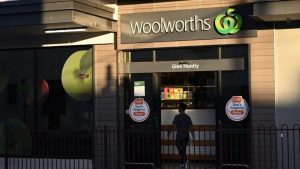
In short:
Woolworths and Coles say Amazon is one of their biggest rivals, as the global retailer competes on more of the same products.
A business professor says Amazon’s reach in Australia is growing, with consumers shopping around for savings.
What’s next?
Woolworths says it is investing hundreds of millions of dollars on its online offerings to compete.
Australian supermarket giants have told the consumer watchdog they are concerned about growing competition from Amazon.
International retail heavyweights like Aldi, Costco, and Amazon are among the top competitors Woolworths and Coles have identified at the Australian Competition and Consumer Commission (ACCC) supermarkets inquiry.
Woolworths and Coles told the inquiry Amazon was a strong emerging competitor, even though it does not retail fresh produce like fruit and vegetables, meat, poultry, fish and dairy.
Woolworths chief executive Amanda Bardwell said the business was investing hundreds of millions of dollars in its online offerings, to compete with Amazon.
“It covers now an increasing range of our products … and represents roughly 40 per cent of our total sales coverage,” Ms Bardwell said.
Coles chief executive Leah Weckert said Amazon could be “quite disruptive” to its business model, and this was part of the reason it had invested in two automated distribution centres.
“The challenge we are going to have is being able to adequately compete with a two-hour delivery time out of robotic centres in the middle of Melbourne and Sydney,” she told the inquiry.
The CEO of Coles says Amazon has the potential to be “quite disruptive” for the supermarket chain. (ABC News: Tom Joyner)
Coles, Woolies look to the web
An IBISWorld report from October using its own internal calculations identified Woolworths as the biggest player in online shopping in Australia, with more than 11 per cent market share, and $6.6 billion in projected industry revenue for the 2024-25 financial year, followed by Coles, with more than five per cent market share and $3.2 billion in industry revenue.
Amazon Australia was also among the “major players” in the report, with $2 billion in industry revenue, and 3.4 per cent of the market share.
An IBISWorld report shows Woolworths is the biggest player in online shopping in Australia.
Online shopping accounted for about 15 per cent of Woolworths’ sales, and was the fastest growing part of its business, the supermarkets inquiry heard.
“We expect that it will continue to increase substantially over the coming years,” Ms Bardwell said.
She told the inquiry Woolworths lacked data on how much of the market share Amazon had taken, but that roughly 80 per cent of the Australian population was within a 12-hour drive of Amazon’s distribution centre in Western Sydney.
“As Amazon has demonstrated across the world, they start to grow very dramatically,” Ms Bardwell told the inquiry.
Coles told the inquiry they believed regular customers were already shopping for products such as dishwashing items and nappies online.
“It has the potential to compete within the bricks and mortar space because so many customers use Amazon,” Ms Weckert said.
The ACCC estimates Woolworths accounts for more than 32 per cent of supermarket sales nationally. (ABC News: Maani Truu)
Amazon’s Australian imprint
Amazon launched its Australian retail store in 2017 and is spending billions on its business in Australia.
It has six fulfilment centres and 12 logistics sites in Australia, and is spending $1.6 billion on adding five new operational sites, which are expected to open by 2026.
In a submission to a separate ACCC inquiry, into online platforms, Amazon said it accounted for a “very small proportion” of Australia’s online sales — less than 2.5 per cent in 2021–22.
“Consumers have an incredible range of retailers to choose from, making retail an intensely, competitive, growing, and dynamic sector,” the submission said.
Woolworths says Amazon is competing across more of its total sales coverage. (ABC Rural: Emma D’Agostino)
Shoppers in search for savings
QUT business school Professor Gary Mortimer said Amazon’s reach in Australia was still a long way behind the rest of the world, but it was growing.
“The likes of shelf-tolerable products — cereals, soap products, laundry detergents — that market seems to get bigger and bigger for them here in Australia,” he said.
He said Australian shoppers were actively looking at ways to access cheaper food and groceries.
“If we look at Roy Morgan research over the past decade, it clearly shows that well over 70 per cent of us will shop across two or three brands of retailer to access food and groceries in any given fortnight,” Professor Mortimer said.
Professor Gary Mortimer says shoppers are looking to save. (ABC News: John Gunn)
In a statement, Amazon said online retailers were making a difference to Australians trying to manage household budgets.
Amazon also said it was focused on delivering value for Australian customers and empowering Australian small businesses to sell in its stores.
“Research shows that without the cost-efficiency and competitive effects of online retail channels, annual inflation would have been 0.7 percentage points higher at its peak in 2022,” the statement said.
Shoppers still prefer in-store, watchdog says
In the supermarkets inquiry interim report, the ACCC said Coles, Woolworths, and the Australian Retailers Association were the only ones to raise Amazon as a potentially significant competitor in their submissions.
“ACCC consumer survey results suggest most Australian consumers currently prefer to do most of their grocery shopping in-store,” the report said.
Five per cent of the ACCC’s survey respondents said they regularly bought groceries from Amazon, while 17 per cent did occasionally.
Seventy-eight per cent said they never bought groceries from Amazon.
Selwyn Patterson says he prefers to shop for food in-store. (ABC Rural: Timu King)
Mildura shopper Selwyn Patterson told the ABC he preferred to shop for food in-store.
“If I’m going to buy some groceries, some fresh food, I’d go where I can actually see the food and purchase what I think I would like, rather than have someone just deliver it to me, sight unseen,” he said.
However, he said price and convenience could make him consider shopping online.
Fresh food key to supermarket status
In his review of Australia’s Food and Grocery Code of Conduct in June, Dr Craig Emerson said Amazon did not appear to be operating a “supermarket business” at the moment, because it did not supply fresh produce.
ACCC assisting counsel, Naomi Sharp SC. (ABC Rural: Emma Field)
At the supermarkets inquiry, the ACCC’s barrister, Naomi Sharp SC, asked if Woolworths thought Amazon would replicate its range or footprint within the next 10 years.
“It takes a substantial investment to be able to offer the fresh and cold chain management that we do for some of those fresh categories,” Mr Bardwell replied.
“What we’ve seen overseas is Amazon often partnering with other retailers to be able to provide that aspect of their offering as a complement to it overall.”
The ACCC wrote in its interim report that it did not consider non-supermarket businesses retailing groceries to be “significant competitors to supermarkets” although some consumers might consider them alternatives, at times.
Coles fronts the ACCC supermarkets inquiry today.
You can now read the most important #news on #eDairyNews #Whatsapp channels!!!
🇺🇸 eDairy News INGLÊS: https://whatsapp.com/channel/0029VaKsjzGDTkJyIN6hcP1K

























